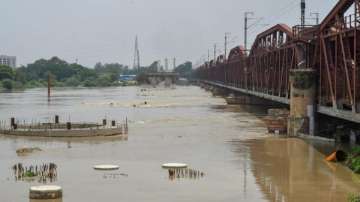The National Green Tribunal-appointed Yamuna Monitoring Committee asked the Delhi Pollution Control Committee (DPCC) on Thursday to inform it about the number of idols immersed in artificial ponds this festive season and how were they disposed of after the rituals. The directions came after a DPCC study showed that immersion of idols in artificial ponds during Ganesh Chaturthi and Durga Puja led to a "significant" decrease in pollution load on the Yamuna river this year as compared to last year when there were no artificial ponds.
"On scrutinising the report (on idol immersion), it has been noticed that information on certain critical aspects is missing. It is, therefore, requested that information on the number idols prevented from being immersed in the river may also be provided to the monitoring committee," the panel said in a letter to the DPCC.
The two-member panel, comprising retired National Green Tribunal (NGT) expert member B S Sajwan and former Delhi chief secretary Shailaja Chandra, also asked the DPCC if the number of ponds and their geographical spread was adequate. The public and environment activists had earlier flagged the issue of "insufficient" number of artificial ponds available for the ritual.
The Delhi government had created 89 artificial ponds for idol immersion across the city to check pollution of the Yamuna. It had initially proposed to create artificial ponds at 151 locations. The number was later brought down to 116 and finally to 89.
The committee also asked the pollution control body to inform it how the idols and items used for puja, collected from the ponds after the ritual, were disposed of -- whether they were taken to solid waste management sites or dumped in landfills.
"It was also reported that some ponds had insufficient water and their size was small in comparison to the idols," the panel said. Earlier, the DPCC in a report said that immersion of idols in artificial ponds had a "definite positive impact" on the quality of the Yamuna river water.
"The study shows significant reduction across almost all parameters, including toxic metals, at all the locations as no toxic dyes/chemicals/paints entered the (Yamuna) water," the report stated.
Also Read| DU administration holds meeting with teachers' association
Also Read| DU teachers protest, demand absorption of ad-hoc teachers
Latest India News

